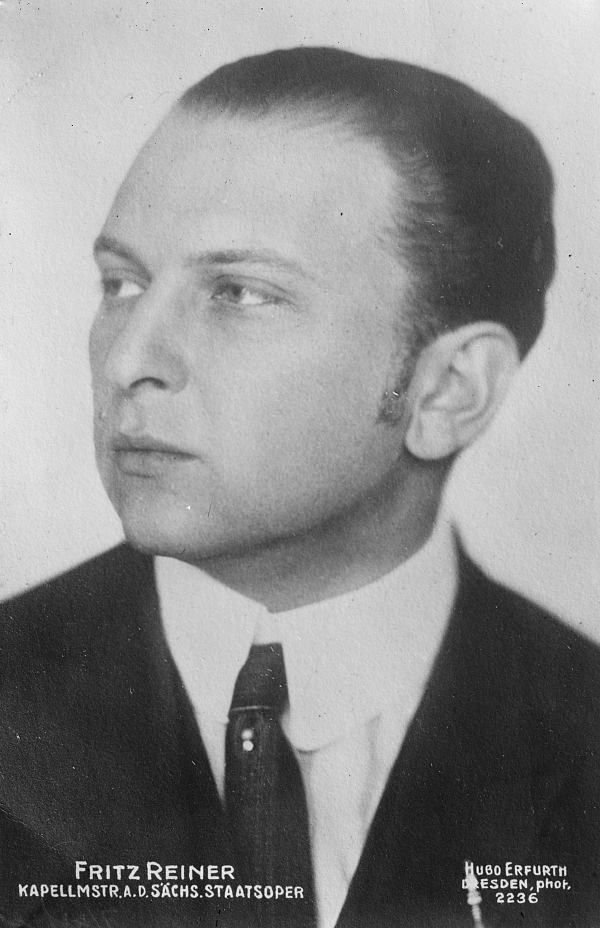
From the Wikipedia entry for Fritz Reiner:
Frederick Martin “Fritz” Reiner (December 19, 1888 – November 15, 1963) was a prominent conductor of opera and symphonic music in the twentieth century. Hungarian born and trained, he emigrated to the United States in 1922, where he rose to prominence as a conductor with several orchestras. He reached the pinnacle of his career while music director of the Chicago Symphony Orchestra in the in the 1950s and early 1960s.
Reiner was especially noted as an interpreter of Richard Strauss and Bartók and was often seen as a modernist in his musical taste; he and his compatriot Joseph Szigeti convinced Serge Koussevitzky to commission the Concerto for Orchestra from Bartók. In reality, he had a very wide repertory and was known to admire Mozart’s music above all else.
Reiner’s conducting technique was defined by its precision and economy, in the manner of Arthur Nikisch and Arturo Toscanini. It typically employed quite small gestures — it has been said that the beat indicated by the tip of his baton could be contained in the area of a postage stamp — although from the perspective of the players it was extremely expressive. The response he drew from orchestras was one of astonishing richness, brilliance, and clarity of texture. Igor Stravinsky called the Chicago Symphony under Reiner “the most precise and flexible orchestra in the world”; it was more often than not achieved with tactics that bordered on the personally abusive, as Kenneth Morgan documents in 2005 biography of the conductor. Chicago musicians have spoken of Reiner’s autocratic methods; trumpeter Adolph Herseth told National Public Radio that Reiner often tested him and other musicians
